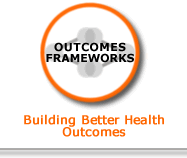 |
F. Evidence for holistic support from services for people with drug use problems (Recovery Model) |
Summary There is highly processed and review-level evidence as well as policy directives that support the effectiveness of a person-centred sustained and holistic approach for improving health and treatment outcomes of people who use drugs. Review-level evidence demonstrates the benefit of psychosocial interventions and suggests case management is effective as a strategy for linking community and treatment services for persons with substance use disorders in need of a variety of support. Rationale NICE Clinical Guideline 51 Drugs Misuse: Psychosocial Interventions [1] general considerations state:
Housing support There is review-level evidence from a rapid systematic review that support with housing, particularly for people with mental health or substance misuse problems benefits health. Evidence suggests housing provision should optimally be combined with other support services. [2]
Evidence of effectiveness of psychosocial interventions to improve drug-related outcomes There is highly processed evidence of effectiveness from a Cochrane Review of standard psychosocial support (routine counselling) delivered with methadone maintenance treatment (MMT), when compared to any other structured psychosocial intervention delivered with agonist maintenance treatments.[3]
Case management for people with drug use problems There is highly processed evidence from a Cochrane Review that suggests case management is effective as a strategy for linking community and treatment services for persons with substance use disorders in need of a variety of support. However, effects differ depending on availability, access and model of case management (with the most promising effect found for strengths-based approaches and the use of a manual to guide and standardise delivery). Findings related to drug use outcomes varied but overall did not provide convincing support that case management is effective to reduce illicit drug use, although a small effect was found when compared with other specific treatment such as motivational interviewing or drug counselling. A small number of studies found evidence of a moderate significant effect for improvements in housing and small (yet non-significant) but consistent effect on legal outcomes (e.g. number of days incarcerated, charges for drug-related offences). This evidence is drawn from studies that concerned patients who were out of treatment when assigned to case management or control. [4]
Scottish policy and practice note Scottish Government's Developing Recovery-Orientated Systems of Care (ROSC) through Service Redesign: Driver Diagram [5] is a tool to assist local areas with service planning and redesign to work towards the implementation of a recovery-orientated system of care (ROSC). The tool includes links to guidance and advice when undertaking system redesign work locally.
Quality Principles: Standard Expectations of Care and Support in Alcohol and Drug Services 2014 [6]
|
References:
|

